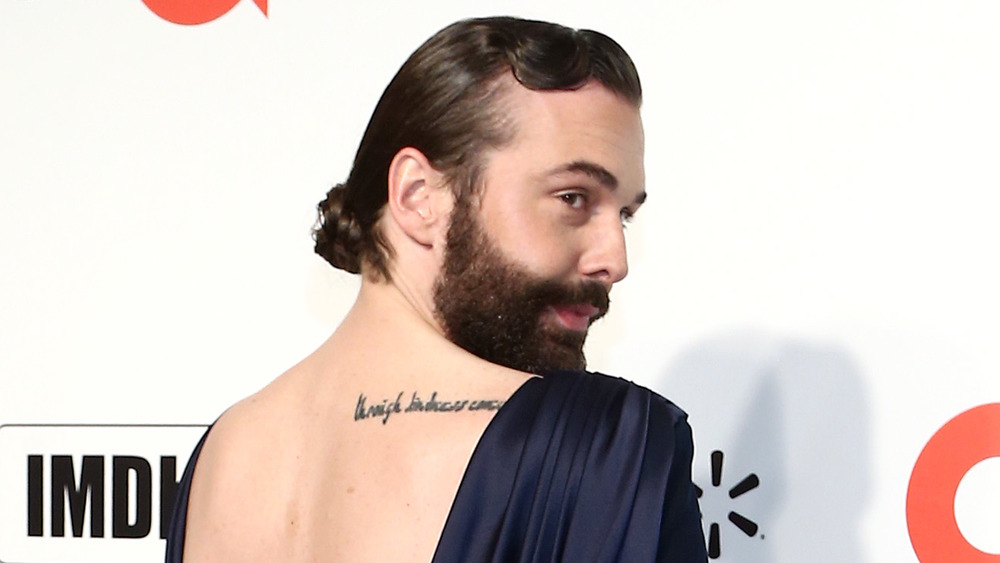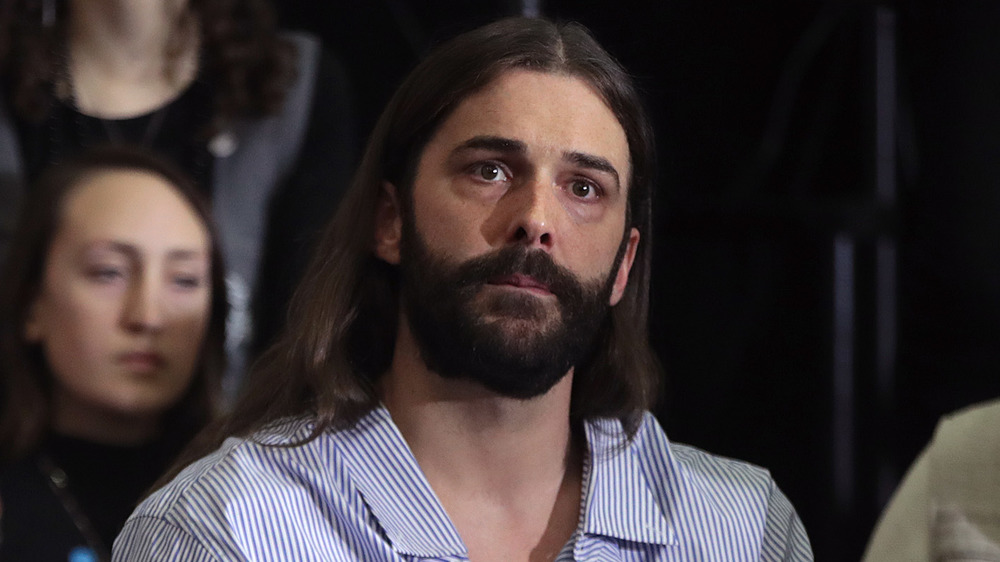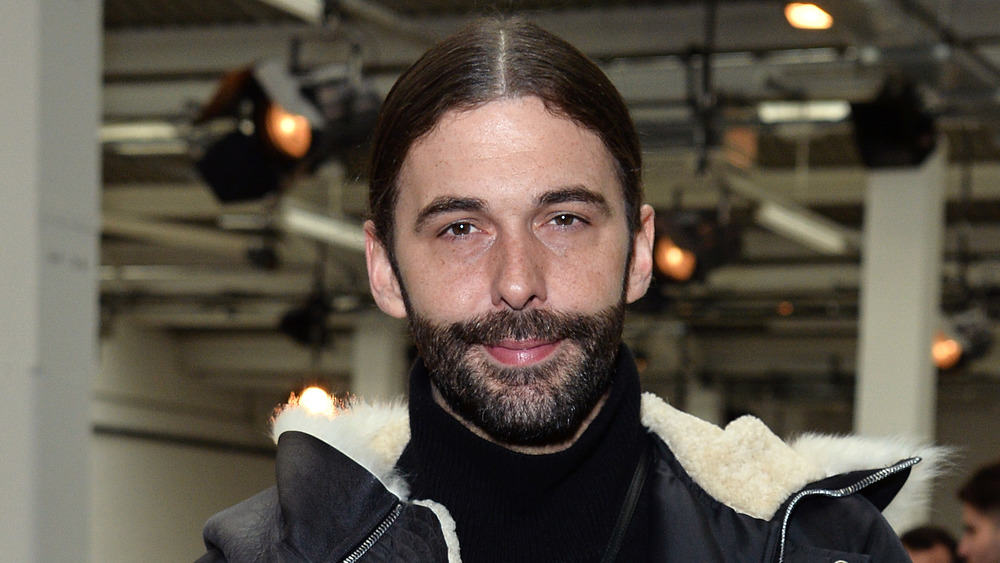Why Jonathan Van Ness Was Afraid To Come Out About His HIV Status
While the cast members of the much-lauded Queer Eye reboot on Netflix have made it their mission to proactively advocate for self-care, mental health awareness, and utilizing vulnerability to combat against toxic masculinity, the show's designated grooming expert Jonathan Van Ness is now seemingly at the forefront.
In a December 2020 profile for Self magazine, which features Van Ness on the cover, he not only continued to rally for others to wear face masks for the duration of the coronavirus pandemic, but opened up about how his own status as an HIV-positive person has affected his personal and public lives.
Van Ness, who is queer, nonbinary, and primarily uses he/him pronouns, told Self in the exclusive interview that before deciding to disclose his HIV status in a September 2019 interview with The New York Times (and before the publication of his memoir), he wrestled with the complexities of how the news could possibly impact his career. So how did Van Ness come to the decision to come out as HIV positive? Read on to find out.
Jonathan Van Ness struggled for years with finding strength in his HIV status
As reality star and grooming virtuoso Jonathan Van Ness recounted in a December 2020 interview with Self magazine, he frequently struggled with his HIV-positive status ever since he was diagnosed in 2012 at the age of 25. While an HIV diagnosis is far from the death sentence it once was in the 1980s and 1990s, the stigma and marginalization many face from it are enduring and can have negative ramifications for those who do test positive.
While the producers and Van Ness' fellow Queer Eye cast members were well-aware and supportive of his diagnosis before the show debuted in 2018, the TV personality still wrestled with what going public as an HIV-positive person could feasibly do to his career.
"I don't remember when exactly the switch flipped, but it was kind of a gradual. Do I want to have to talk about this [publicly]?" Van Ness recalled. "There's a younger part in me that was scared that if I did come out with my status and talk about it, that [it] was going to be the only facet of me that people were going to want to talk about or think about or acknowledge. People that are educated and worth your while in the first place are not going to reject you on the basis of your HIV status."
Jonathan Van Ness is charting new terrain as an openly nonbinary celebrity with HIV
In the case of Jonathan Van Ness, the stigmatization of those who are HIV positive has an added layer: the fact that he identifies as nonbinary. Studies that specifically focus on HIV stigmatization and nonbinary trans people are virtually nonexistent. This is mostly due to the fact that respondents on surveys, ranging from scientific studies to large governmental data collection efforts like the U.S. census, are largely binary and do not ask respondents whether they identify as transgender, as policy groups like the National Center for Trans Equality have pointed out.
While Van Ness was first diagnosed as HIV positive before he came out as nonbinary and outwardly identified as a cisgender gay man, his fears concerning stigmatization are overwhelmingly valid. Though cisgender gay men who are diagnosed with HIV face their own overwhelming set of obstacles, the ones that HIV-positive trans people uniquely face can be just, if not more, damaging.
As the LGBTQ+ organization the Human Rights Campaign states on their website, the studies that focus on this matter, which do not include nonbinary people, discuss the marginalization they face and how it can contribute to higher rates of infection.
These risks include "higher rates of drug and alcohol abuse, sex work, incarceration, homelessness, attempted suicide, unemployment, lack of familial support, violence, stigma and discrimination, limited health care access, and negative health care encounters."
If you or someone you know is struggling with mental health, please contact the Crisis Text Line by texting HOME to 741741, or call the National Alliance on Mental Illness Helpline at 1-800-950-NAMI (6264).
Crisis Text Line: https://www.crisistextline.org/
NAMI Helpline: https://www.nami.org/help



